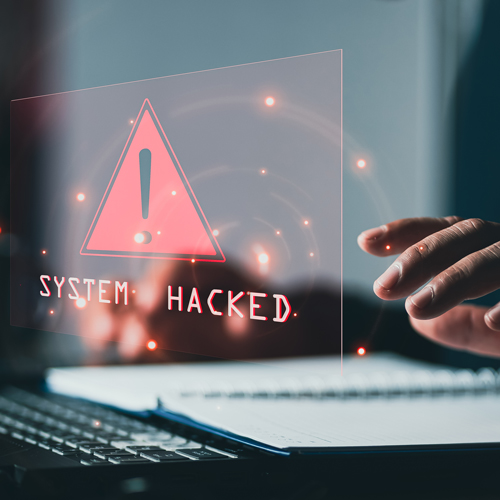
Data breaches, ransomware, and cyberthreats are constantly in the news. Investing in the right security certifications for your IT team is investing in the overall security posture of your organization. Certified teams are better able to design, implement, and manage robust infrastructure, protect sensitive data and assets, and keep everything rolling smoothly. Additionally, having certified professionals on your IT team sends a clear message to customers, stakeholders, and your entire organization: We take cybersecurity seriously and are committed to safeguarding the information entrusted to us. That enhances a company’s reputation and trustworthiness among clients, partners, and stakeholders—which is almost as valuable as the skills CISSP- and CompTIA-certified employees bring to the table.
What are Security+ and CISSP certifications?
It’s easy to get lost in the thicket of cybersecurity certifications and find yourself wondering: “What is the difference between CompTIA Security+ and CISSP?”
At first glance, they seem nearly interchangeable:
- Both are well-recognized and respected cybersecurity credentials.
- Both are approved by the U.S. Department of Defense to meet directive 8140/8570.01-M requirements.
- Both are vendor neutral.
- Both appear to cover many of the same topics (especially in the more technical domains, like networking, cryptography, and public key infrastructure).
But CISSP and Security+ differ significantly in scope, level, and purpose. They serve two distinct roles in developing solid IT teams.
CompTIA Security+ for hands-on knowledge of security
CompTIA Security+ is an entry-level certification for most IT workers (although it may feel more “intermediate” to those who have little or no formal IT work experience).
It's designed for IT professionals who want to move into an operational cybersecurity role and need to certify they have the foundational IT knowledge required to perform core security functions.
There are no formal prerequisites for earning Security+ though CompTIA suggests having at least two years of experience in systems administration or cybersecurity. It certainly doesn’t hurt to have already earned CompTIA Network+ certification.
Pearson VUE offers an entry-level CompTIA Security+ video training course that’s appropriate for anyone interested in learning IT security fundamentals. This self-paced program is built around modules that offer deep dives into both security theory and everyday practices. It’s supported by Pearson CertPREP Training Labs. Most lessons end with a “Security in Action” demonstration that provides a practical, hands-on illustration of the most important concepts.
ISC2 CISSP Certification for “big picture” IT leadership skills
ISC2’s Certified Information Systems Security Professional (CISSP) certification is fundamentally different from CompTIA Security+. CISSP is an advanced security certification. Passing the CISSP exam demonstrates that a cybersecurity professional has the knowledge and skills to design, implement, and lead an organization’s information security program.
CISSP is a highly respected and sought-after certification. CISSP certification preparation is correspondingly more arduous. The exam itself is longer, as are the courses, which cover more domains at greater depth. Earning a CISSP certification requires at least five years of prior paid experience in cybersecurity.
Right now, the global demand for CISSP-certified professionals significantly exceeds the supply, which is why many organizations see the best results when they can cultivate talent they already have. CertPREP’s self-paced ISC2 CISSP Certified Information Systems Security Professional course aims to make this as easy as possible, offering in-depth training and preparation for the CISSP exam. The course teaches approaches to security and risk assessment and management, information and asset security, reviewing security and communication architecture for vulnerabilities and design flaws, managing security operations, and more.
Security+ vs. CISSP in brief
CompTIA Security+ is an entry-level cybersecurity certification focused on hands-on, day-to-day operational information and network security skills. It’s appropriate for cybersecurity analysts, security engineers, administrators, and those new to the field and looking to move forward with a career in information security. It is a more hands-on certification that emphasizes technical knowledge. Many consider it an important building block toward earning CISSP certification.
CISSP, meanwhile, focuses on strategic, “big picture” cybersecurity skills for security managers, directors, and executives. It is for experienced professionals seeking to validate their expertise and move into higher-level positions within the information security field. Instead of being principally operational, the CISSP certification exam brings together practical knowledge with managerial decisions, shedding light on why technical choices are made as they are. CISSP is recognized globally and considered a more prestigious certification.
CISSP and CompTIA Security+ are both important cybersecurity certifications, covering core aspects of information security. Investing in the training to earn these certifications doesn’t just prepare your teams to maintain your networks and respond to cybersecurity incidents: It also clearly communicates your commitment to good and trustworthy business practices. Contact us today to discuss your workforce certification needs. Our training experts are ready to answer all your questions.
Looking for IT training and learning solutions to upskill your existing team or attract new pros?
Explore our catalog of IT certification prep materials, including courseware, practice tests, certification exam vouchers and more.



































